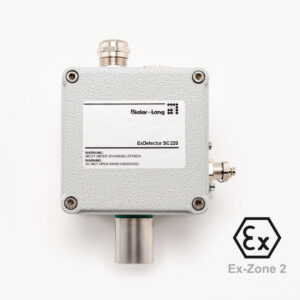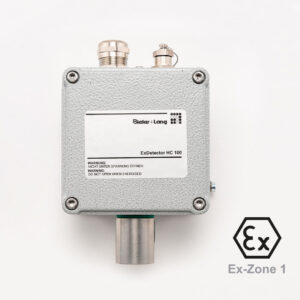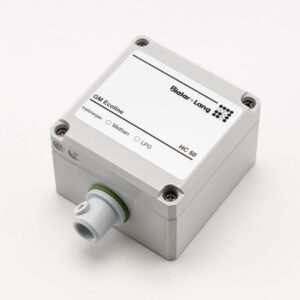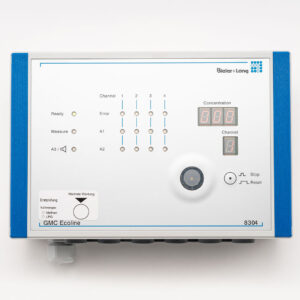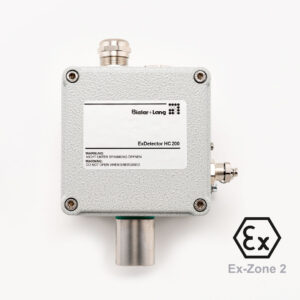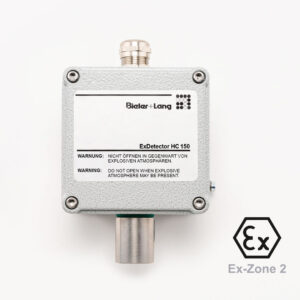Propane (C₃H₈) – energy source with considerable explosion potential
Propane (C₃H₈) is a versatile and widely used component of liquefied petroleum gas (LPG), which is used as a fuel in households, trade and industry. Whether in heating systems, forklift trucks, camping stoves or LPG systems – propane offers efficient energy, but also poses a considerable risk. Due to its high flammability and explosiveness, an unnoticed propane leak can quickly become a danger to people and equipment.
Explosion and fire hazard due to propane
Propane is gaseous under normal conditions, but is liquefied under slight pressure for storage and transportation. Even the smallest quantities of propane that escape into the air can form explosive mixtures with air.
Important safety-relevant properties of propane:
- Explosion limit range: approx. 2.1 – 9.5 % by volume in air
- Ignition temperature: approx. 470 °C
- Flash point: approx. -104 °C
- Gas density: significantly heavier than air – propane collects near the ground, shafts and sinks
Due to its higher density, propane does not spread evenly, but is deposited in low-lying areas. This makes leaks particularly dangerous, as even a small ignition source can trigger a serious explosion.
Why gas detectors for propane are vital
Without reliable gas warning technology, a propane leak usually remains undetected, as propane is colorless and odorless – the typical gas odor is only created by added odorants. In poorly ventilated or confined areas, explosive gas-air mixtures can spread unnoticed and cause considerable danger.
Our gas detectors for propane offer you:
- Early detection of propane concentrations far below the lower explosion limit
- Reliable monitoring in storage rooms, workshops, production areas and ATEX zones
- Audible and visual warning signals in the event of danger
- Integration into shutdown, ventilation and fire protection systems
Typical applications for propane detection:
- LPG filling stations and LPG storage facilities
- Heating systems, condensing boilers and camping appliances
- Industrial ovens, workshops and forklift trucks powered by propane
- LPG systems, vehicle workshops and test benches
- Food production, commercial kitchens and gastronomy
The use of gas warning systems in these areas is not only sensible, but often required by law – for example in accordance with ATEX, BetrSichV or DGUV.
Conclusion: Use propane safely – with modern gas warning technology
Propane is an efficient and versatile energy source whose safe handling is a top priority. With our precise propane gas detectors, you can ensure optimum protection for your employees, systems and operating processes and effectively minimize risks from explosive gas mixtures.
The following gas sensors and systems from Bieler+Lang can detect propane
We will be happy to advise you on the selection of suitable detectors and the corresponding evaluation devices for your individual application.

